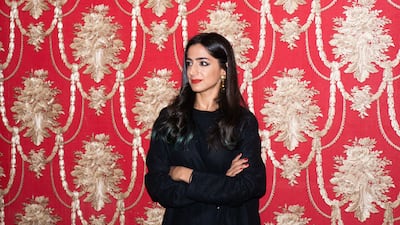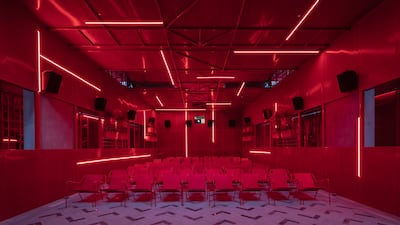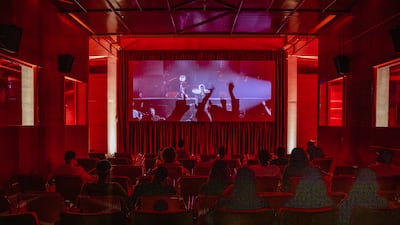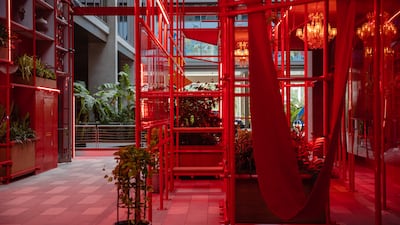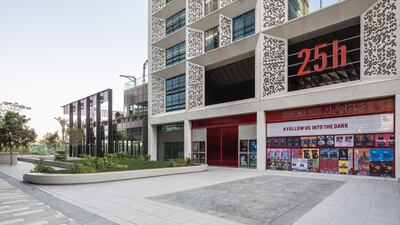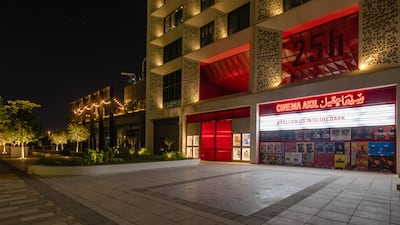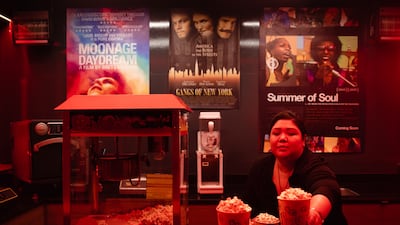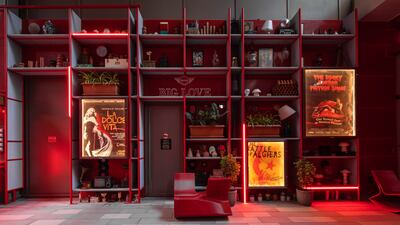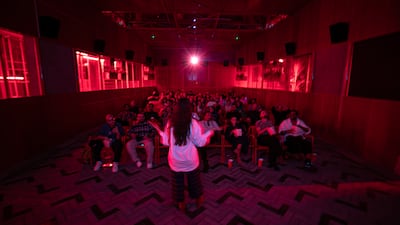Our Working Wonders of the UAE series takes you to some of the country's most recognisable destinations to uncover the daily duties of the talented employees working there
As a child, Butheina Kazim would pore over obscure independent films her father brought home from work trips to America.
Today, the Dubai resident brings art house films from around the world to the UAE as the founder of the region’s first independent cinema platform.
Showcasing directors and filmmakers across the decades, Cinema Akil aims to offer an alternative window into global stories that go beyond the Marvel universe.
Here, The National joins Ms Kazim as she prepares to host the 10th Reel Palestine film festival, which will run from January 26 to February 4.

When did you become interested in cinema and how did your passion become a full-time job?
I grew up around film because my dad was a cinephile. He used to work between Dubai and the US and he would bring back laser discs, which came before DVDs.
It was always a very eclectic collection including everything from Lawrence of Arabia to The Texas Chain Saw Massacre to FernGully: The Last Rainforest, and that became my film education.
As I got older, I became interested in the social dimension of what independent art house cinema represents and the historical, social and political impact that it has.
I was following that space slowly, and it struck me that we did not have a platform for regional films that placed them on equal footing as Euro-American-centric presentations of cinema.
I started hosting independently run community screenings through friends and partners, with about 14 seats in Al Quoz, even before a lot of the galleries were around.
I really felt that there was this craving from like-minded people in the creative industries who were coming together and trying to find each other.
A bricks-and-mortar component was something I really gravitated to, and that came years later when we opened our doors in Alserkal Avenue in 2018.
How has Dubai’s arts scene evolved in recent years?
When I first started throwing around the idea of having an art house, I was not sure the city would be ready, because it was not trying to speak to folks who were looking for inspiration and discourse outside of the creature comforts of life in Dubai.
In a way, we grew with the city. The spaces grew organically with the place, so we mirrored the new waves of immigration and people who were arriving and adapted to the yearning that emerged.

Now, in 2024, cinema at large is changing and there is a bigger shift in what we are watching and what is being made.
People around the world are seeking authenticity, closeness, truth, veracity, compassion and empathy in cinema.
What effect can cinema have on society as a whole?
I do not think it is a straightforward, direct relationship. I think it is an accrued soft, magical kind of power that lies in cinema.
It presents a universe that we can insert ourselves into. Some people call it escapism, some people call it seeking, some people call it surrender but, ultimately, you go into a film and specifically an independent film, and you walk out of it with a closer, deeper, empathetic understanding.
Whether you love the film or hate it, film shows you a very different kind of side of a story and a very personal side of the story and you cannot help but have this lasting relationship with whatever you have seen.
While it does not necessarily tell you the history of whatever country, the film tells you a really specific story that reveals a much larger universal understanding and that accrues in building world views and challenging narratives.
I think right now, as we witness the war on Gaza, we are seeing it play out on social media and in different types of material that is using moving images to challenge the status quo.
That becomes a very direct relationship because that is the news and cinema is part of that world and part of that universe.
We have seen how cinema can be “weaponised” throughout history, in fascist Germany and many other countries – that is not a secret. There is the beauty of cinema and there is the ugly side of it as well, and it can be used for both.
What is next for Cinema Akil?
We recently opened our seasonal location at 25hours Hotel Dubai One Central, which is free and open to the public. It mirrors the tone of the district and the hotel, and that is reflected in the programming.
We started as a nomadic cinema that relied on partnerships, and that gave birth to the physical box office cinema in Alserkal Avenue.
Today, we are in Saudi Arabia, Doha and Abu Dhabi, through partnerships that believe in cinema, as a community development.
January 26 marks the 10th anniversary of Reel Palestine film festival and we have a lot of talent and filmmakers coming in for that.
That is a very big start to the year and it always galvanises us and keeps us steady for the rest of our programming.
Reel Palestine runs from January 26 to February 4. More information is available at www.reelpalestine.org
